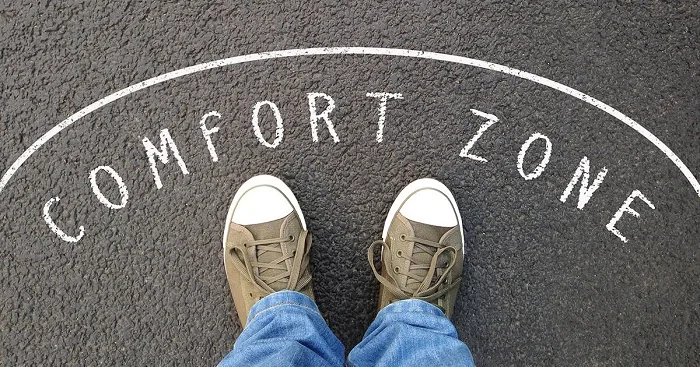
Breaking Boundaries: Exploring Personal Growth Beyond Comfort Zones
The world we inhabit is often a compact bubble tailored by our routines and familiar environments. Stepping out of this comfort zone is not just about seeking new experiences; it’s about fostering personal growth and development. In this article, we explore why challenging your own boundaries can be profoundly beneficial.
We often create safe spaces that make us feel secure. However, living continually within these bounds can limit our potential and prevent us from discovering new passions or improving our skills.
We are used to living in our own little world that we create for ourselves
Our comfort zone is like a cozy nest that we meticulously build around ourselves. It’s made up of the places, people, and routines we know best. Here, everything feels familiar and controlled, reducing our exposure to stress and uncertainty.
However, this very comfort can lead to stagnation. When we stop pushing our boundaries, we miss out on opportunities for personal growth and the excitement that comes with new experiences.
In the comfort zone, we reach our development limit and cannot develop further
Development and comfort rarely go hand in hand. Staying within the confines of what’s familiar often means we are not challenging ourselves enough to learn and grow.
Research shows that when we undertake tasks that push our boundaries, we engage different parts of our brain, leading to new neural pathways. These pathways can lead to increased creativity and problem-solving skills.
Embracing challenges is crucial because it forces us to adapt and innovate, which are key components of personal and professional development.
Why it is important to leave your comfort zone for development
Leaving your comfort zone means embracing the unknown. It’s about making a conscious decision to face the anxiety that comes with new experiences as a step towards personal growth.
Trying new things, even if they lead to failure, helps build resilience and confidence. Each challenge, whether big or small, teaches us more about ourselves and our capabilities than we could learn in the safety of routine.
Furthermore, stepping out of your comfort zone can expand your social network and expose you to different cultures and ideas, enhancing your worldview.
Development psychologists argue that optimal growth occurs at the boundary of support and challenge. This is often referred to as the ‘zone of proximal development’ where learning and development are maximized.

Tips for people on how to master and pull it off
Stepping out of your comfort zone can seem daunting, but with the right strategies, it can become a rewarding habit. Start small: take a different route to work, or try a new restaurant. Small changes can pave the way for bigger challenges.
Set specific, achievable goals. Whether it’s learning a new skill or visiting a new country, having clear objectives can motivate you to push through discomfort.
Seek support from friends or mentors who can encourage and guide you. Knowing you are not alone in the journey can make stepping out more manageable.
Reflect on your experiences. Keeping a journal can help you process your feelings and recognize your progress, making the unfamiliar more comfortable over time.
Is it important to return to your comfort zone and to better equip a new one
While it’s beneficial to leave your comfort zone, it’s equally important to return to it occasionally. Doing so allows you to process your experiences and consolidate your learning.
Returning to your comfort zone provides a mental rest period, which is necessary for health and balance. During this time, you can reflect on what you’ve learned and prepare yourself for the next challenge.
Ultimately, the goal should be to expand your comfort zone by integrating new experiences into it. This way, what was once daunting becomes familiar, and your comfort zone gradually grows, encompassing a broader range of experiences and skills.
